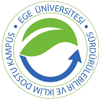History of the Department of Turkish Language
“Turkish language is one of the richest languages. It needs only to be used with awareness.”
“I wish that Turkish language presents its rules by scientific methods and people who are writing about any topic use our harmonious language that can be understood by the majority, with all of its terms.”
| Chair : | Prof. Dr. Metin EKİCİ | 2074-2923 |
| Vice Chair. | Lecturer Mehmet İNCE | 2494 |
| Vice Chair. | Lecturer Ahmet SAÇKESEN | 2498 |
| Department Secretary : | Betül YALIM | 2074 |
| Faks: | 232 374 40 92 | |
| Lecturers | ||
|
Fatma AKPINAR |
2901 | |
| İlknur CAN | 2901 | |
| Songül YALÇIN | 2901 | |
| Şenol DEMİR | 2062 | |
| H.Kağan YAYLA | 2062 | |
| Hasan Çağrı ÖLÇÜCÜ | 2062 | |
| Erdinç ŞENGEL | 2505 | |
| K. Zeynep ÇELEBİ | 2497 | |
| Esengül ÖZÜÇELİK | 2497 | |
| Arife GÜLSÜN | 2497 | |
| Emel AYDIN ÖZER | 2469 | |
| Fatma TEKİN | 2469 | |
| Emel ERİNCİK | 1917 | |
| Müge YILMAZTÜRK | 1917 |
GENERAL INFORMATION ABOUT THE DEPARTMENT
The Department of Turkish Language at Ege University aims to ensure that the Ege University students at all faculties and schools -starting from their first year-; comprehend the Turkish language structure and its functioning characteristics; perceive the relationship between language and thought; develop their skills to use the Turkish language accurately, fluently and in an effective manner, written and orally; use a unifying and integrating language in education, and besides, our department intends contributing to raising intellectual young people with contemporary language awareness.
The Department of Turkish Language was founded in accordance with the Article 5/i of the 2547 Higher Education Act, and gives courses of “Turkish Language-I” and “Turkish Language-II” to the freshman students at all faculties and schools of Ege University, two hours a week, at two semesters.
HISTORY OF THE DEPARTMENT OF TURKISH LANGUAGE
The Department of Turkish Language at Ege University is subject to Ege University Rectorate and was founded in 1983 in order to give the students Turkish Language courses, which are mandatory in accordance with the Article 5/i of the 2547 Higher Education Act. There are 17 lecturers working at the Department.
The List of Department’s Chairpersons:
1983-1986 Prof. Fikret TÜRKMEN,
1986-1986 Prof. Tunca KORTANTAMER,
1986-1987 Prof. İsmail AKA,
1987-1992 Prof. Fikret TÜRKMEN,
1992-2001 Prof. Ömer Faruk HUYUGÜZEL,
2001- … Prof. Dr. Metin EKİCİ
THE AIM OF TURKISH LANGUAGE COURSES AT EGE UNIVERSITY
Ensuring that every undergraduate and postgraduate student understands the structure and the functioning characteristics of Turkish language and acquires the ability to use Turkish accurately and well as means of written and oral expressions, in terms of the relationship between language and thought, and raising young people with Turkish language awareness by implementing a unifying and integrating language in education.
Rhetoric (ability to speak effectively), which includes the required rules in order to be able to express thoughts in a great manner in line with the purpose, has become a very important need for young people undergoing any professional training.
In this manner, it will be useful to focus on eloquence in the Turkish language courses given at the high education bodies as a continuation of the Turkish and Literature courses given at high schools; and gaining accurate and efficient speech habits besides written composition is a matter that should not be neglected for young people.
It’s possible to teach the rules and methods about the techniques of speaking in front of people at Turkish course programs, also benefiting from the books written about it in Western countries. It makes sense to make use of the valuable speech texts of Turkish preachers, Atatürk in particular.
Considering the mentioned points at introduction and the purpose of the course, the main titles of the topics covered in the “Turkish Language Course” are indicated below:
1. Definition of language.
2. The place of the Turkish language among world languages.
3. The development and the historical periods of the Turkish language.
4. The current status and the span of the Turkish language.
5. Atatürk´s language policy and "Sun Language Theory".
6. The relation between language and culture.
7. Phonetics and classification of phonemes in Turkish language.
8. Phonetic aspects of Turkish language and the rules on Turkish phonetics.
9. Syllables in Turkish language.
10. Derivational affixes in Turkish language, and exercises on word.
11. Spelling rules, and practices.
12. Punctuation marks, and sentence practice.
13. General information on the written narratives.
14. Planning a written narrative, and practices.
15. The genres of written narratives, and practices.
16. Components of sentence, structure analysis of sentence, and exercises on sentence components.
17. Expression and sentence disorders, and correcting them.
18. Reading and examining the works related to the literary world and thought, and rhetoric practices.
19. Develop the student's right and good speaking and writing skills, based on the sample text from Turkish and world literature; and rhetoric practices.
20. The relation between Turkish culture and the Turkish language; written and oral examples.
21. The current problems in written and spoken Turkish language.











